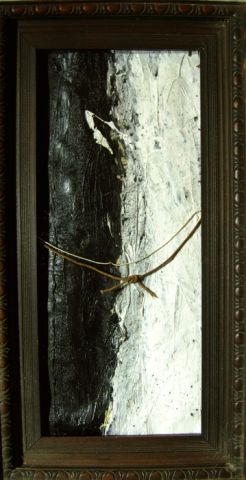I’ve been doing some homework (reading, as always) and in the course of telling my patient husband about what I had read, we had a bit of a verbal tussle. But I’m very grateful for the tussle because it sorted some things out in my thinking.
The topic of homework and ensuing discussion was ‘liking’. That is, does ‘liking’ have any place in addressing art? That is kind of a touchy subject based on what I was reading and some of the discussions in the blogs because it invariably leads to a discussion of taste (sorry David M.). I’ve been sort of leaning to the side which says art is not to be liked because I can see the importance of other issues involved when considering art. But my husband being the ever rational, logical and fiercely independent individual that he is, said tosh! His point being that if ‘liking’ goes, art is then elitist – and he’s right. This is what I came to upon reflection…
Liking has no place in determining worth, but it is very important in viewing. If we remove liking entirely from the equation, art becomes definitively elitist because only the art educated will understand the nuanced issues behind the work such as movements, history etc. and how the work may relate or not depending on its response to those things (we see it already, in abundance). Not everyone who looks at art and enjoys art has the deep understanding of art history that we who are engaged professionally with art do. I feel strongly that is the reason art shouldn’t be ‘just anything’, notwithstanding the fact that often ‘just anything’ is not engaged with art history. Art should engage with the audience on many levels; one of those levels being ‘liking’.
As the poster by William Morris, Jeremy Deller & Scott King protesting funding cuts says, “I do not want art for a few any more than I want education for a few, or freedom for a few”. This statement has implications beyond just funding cuts to the arts.
If we make art professionally, meaning we hope to earn money from it, it must also consider the market and audience in its equation. Otherwise, it’s a private activity done for one’s own pleasure, period. That is not to suggest that we should make art for a market either. Art is complicated, and it should be. But we do ourselves a disservice and we keep the public at bay when we refuse to discuss our work in terms of explanation to a viewing audience. It isn’t wrong to explain the work. That old argument, “the work should speak for itself!” is also elitist and serves little purpose, to my mind.
Why is it hateful to hear that someone likes what we’ve made? Isn’t that as sincere a compliment as hearing our work creates an important link to some period in art history? I think it is and it should be given the respect it deserves.

